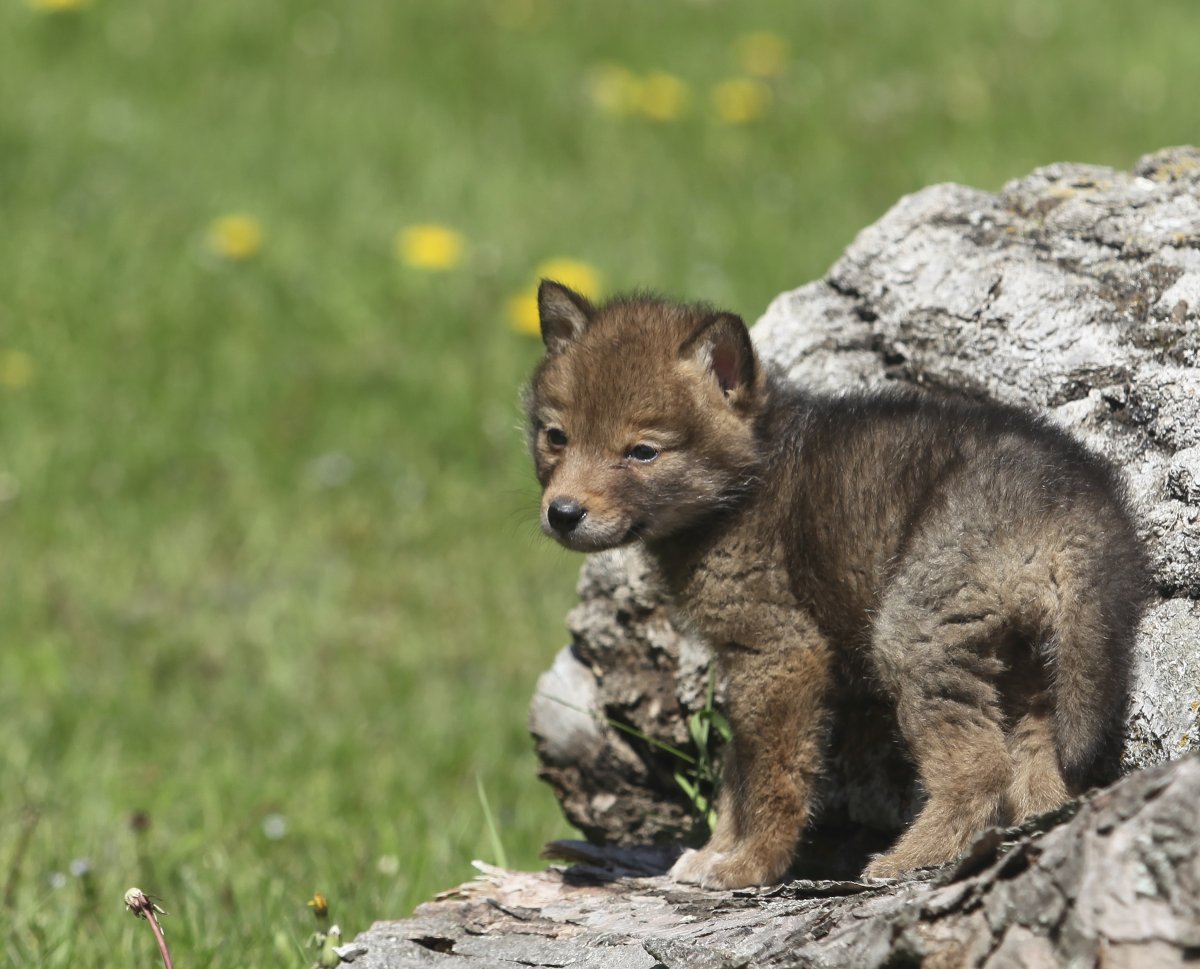A Massachusetts family accidentally rescued a wild coyote pup after mistaking it for a lost dog.
What the family had assumed to be a lost puppy "wandering and distressed by the side of a busy road" actually turned out to be a baby coyote, with a potential risk for rabies, said the Cape Wildlife Center.
After taking the animal home, the family soon realized their mistake and called the center for help. The eastern coyote is common across Massachusetts and can adapt to various environments, including both rural and urban areas. Coyotes give birth to between four and pups in April or May and usually raise them as a family unit until late fall.
This pup however had seemingly been displaced from its unit. Cape Wildlife Center was able to determine that there was no risk of rabies from the animal. The coyote pup was cleared for care rehab by Mass Wildlife.
"He is now recovering comfortably in one of our isolation wards, but will not be on his own for long," confirmed Cape Wildlife Center. "A foster sibling just arrived from a rehab center in Rhode Island and they will soon be introduced."
Once both puppies have received all their vaccinations, they will be raised alongside one another and "given a chance to grow and learn natural behaviors in our large outdoor caging."
The animals will be given as much of a natural upbringing as possible, with their normal behaviors and skills replicated.
This mix-up by the family isn't surprising, with many responding to the center's social media post dubbing the coyote pup "so stinking cute" and a "cutie."
Cape Wildlife Center did, however, warn locals of the potential harm that could have been caused in this case, despite the happy ending. "It could have easily gone differently," they wrote. "Coyotes are considered a Rabies vector species in MA and are susceptible to contracting the virus that is deadly to all mammals including people."
Although coyotes can carry the Rabies virus, successful vaccination programs across the U.S. makes it a rare occurrence. In 2018, the year with the latest available data, Massachusetts found just four percent of animals submitted for testing to have rabies and the majority of which were raccoons, skunks and foxes.
However, the wildlife center warned, that regardless of any infection, "If the finders had been bitten, scratched, or had extended contact, we would have been mandated to euthanize the pup and test for rabies."
The center instead advised that people contact appropriate authorities when finding an animal in need rather than intervening by themselves.
Newsweek has contacted Cape Wildlife Center for comment.

Uncommon Knowledge
Newsweek is committed to challenging conventional wisdom and finding connections in the search for common ground.
Newsweek is committed to challenging conventional wisdom and finding connections in the search for common ground.
About the writer
To read how Newsweek uses AI as a newsroom tool, Click here.






